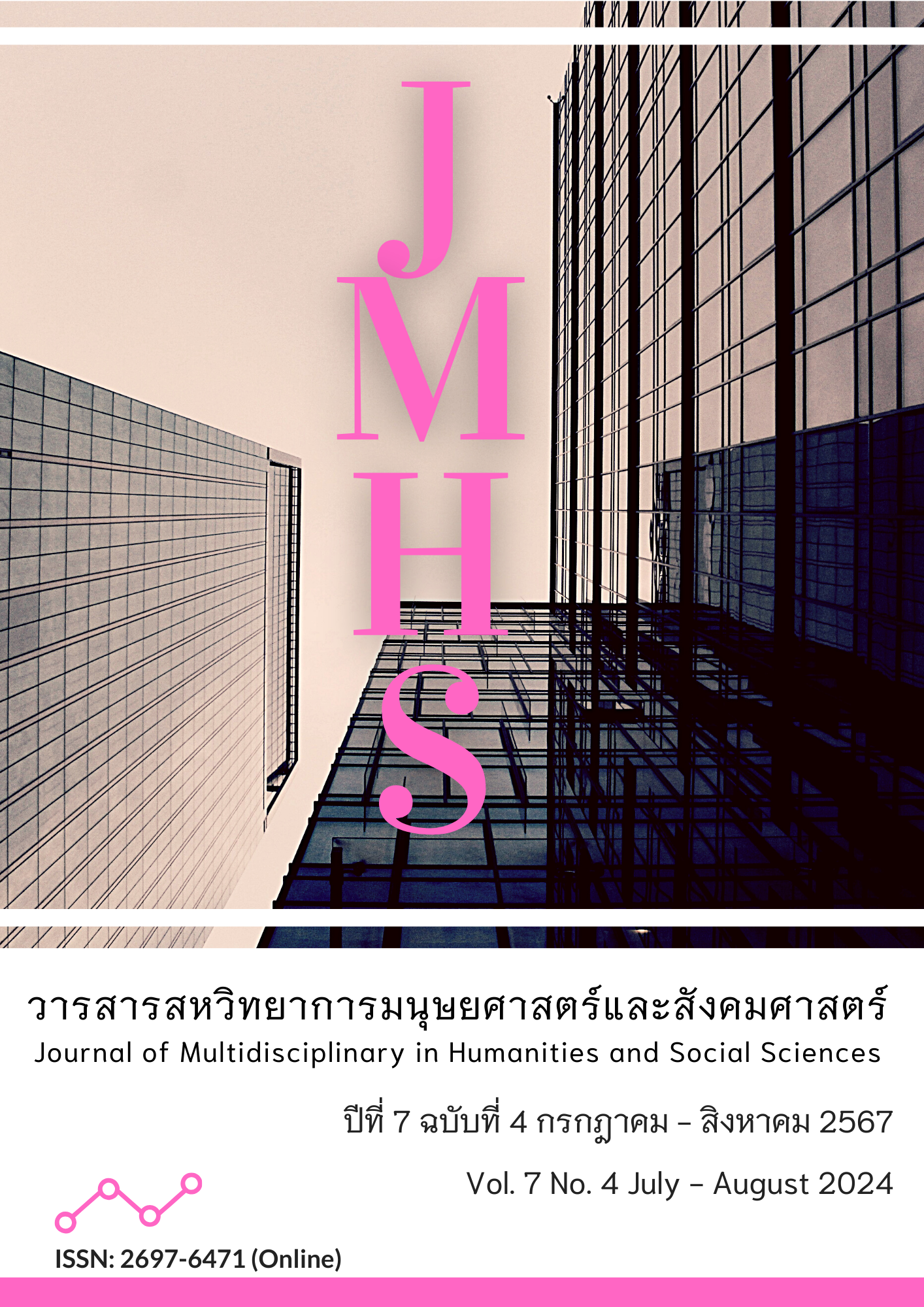Development of Induction Program for Administrators in Schools Affiliated with the Office of the Basic Education Commission
Main Article Content
Abstract
The objectives of this research are: To study the system for entering the position of school administrator at the initial stage of operation under the Office of the Basic Education Commission, and To write the future of the system of entering the position of school administrator at the initial stage of operation. Affiliated with the Office of the Basic Education Commission The subjects in the research are: A group of knowledgeable and experienced professionals on entering school management positions. 15 candidates selected by specific method (Purposive Sampling) Using futuristic research techniques. Ethnographic Delphi Futures Research (EDFR) by blending. Model technique Ethnographic Futures Research (EFR) with model research techniques. Delphi The instruments used in the research consisted of semi-structured interviews and questionnaires. Analyze data using trend statistics to the central interquartile range value and the value Median. The results showed that the system for entering the position of school administrator in the early stages of operation is under the Office of the Basic Education Commission. It consists of 3 components: Selection system Onboarding system Support system. The expert group focuses on the three components of future trends. It is at the highest level and has consistent opinions. The future of the system for entering the position of school administrator at the initial stage of operation. Affiliated with the Office of the Basic Education Commission consist of the Component: Component 1 Selection system the 9 sub-elements Component 2 Preparation System the 12 sub-elements and Component 3 Support System.
Article Details

This work is licensed under a Creative Commons Attribution-NonCommercial-NoDerivatives 4.0 International License.
Views and opinions appearing in the Journal it is the responsibility of the author of the article, and does not constitute the view and responsibility of the editorial team.
References
Barnes, F. D. (2015). Principal Professional Development: A Multiple Case Exploratory Study of District-Led Aspiring Principal Programs Through the Lens of Knowledge Management(Doctoral dissertation). Harvard Graduate School of Education.
Bellanca, J., & Brandt, R. (2000). 21st Century Skills: Rethinking How Students Learn. Indiana: Solution Tree Press.
Crow, G. M (2023). School Leader Preparation: A Short Review of the Knowledge Base. Retrieved September 2, 2023, from https://www.cyut.edu.tw/~t2021013/teaching/9-101principal/refer1-1(randd-gary-crow-paper).pdf
d’Arbon, T., Duignan, P., & Duncan, D. J. (2002). Planning for Future Leadership of Schools: An Australian Study. Journal of Educational Administration, 40(5), 468-485. https://doi.org/10.1108/09578230210440302
Education Bureau of the Hong Kong SAR. (2023). The Selection and Appointment of a School Principal. Retrieved September 2, 2023, from https://www.edb.gov.hk/attachment/en/teacher/qualification-training-development/development/cpd-principals/EN_Guide_2011(revised)_2014.pdf
Ejiwale, J. A. (2013). Facilitating Teaching and Learning across STEM Fields. Journal of STEM Education: Innovations for School administration, 13(3), 87-94. Retrieved from https://eric.ed.gov/?id=EJ988078
Gentilucci, J. L., Denti, L., & Guaglianone, C. L. (2013). New Principals' Perspectives of Their Multifaceted Roles. Educational Leadership and Administration: Teaching and Program Development, 24, 75-85. Retrieved from https://eric.ed.gov/?id=EJ1013151
Hage, J., & Powers, C. H. (1992). Post-Industrial Lives: Roles and Relationships in the 21st Century. California: Sage Publications.
Knight, P. (2002). A Systemic Approach to Professional Development: Learning as Practice. Teaching and Teacher Education, 18(3), 229-241. Retrieved from https://eric.ed.gov/?id=EJ646413
Ministry of Education. (2021). Administration of Basic Educational Institutions. Bangkok: Shipping and Parcel Organization.
Mishra, R. C. (2005). Educational Research and Development. Delhi: APH Publishing Corporation.
Ortega, J. (2001). Job Rotation as A Learning Mechanism. Management Science, 47(10), 1361-1370. https://doi.org/10.1287/mnsc.47.10.1361.10257
Phumphongkhochasorn, P., Damnoen, S., Tuwanno, P. D. M., Srichan, P. W., & Udomdhammajaree, P. (2022). Educational Quality Assurance and School Management Standards According to International. Asia Pacific Journal of Religions and Cultures, 6(1),
-16. Retrieved from https://so06.tci-thaijo.org/index.php/ajrc/article/view/244349
Point, B., Nusche, D., & Moorman, H. (2018). Improving School Leadership Volume 1: Policy and Practice. Paris: OECD Publishing.
Sarattana, W. (2019). Administration of Educational Principles. Bangkok: Arksornpipat Publisher.
Schleicher, A. (ed.) (2012). Preparing Teachers and Developing School Leaders for the 21st Century: Lessons from around the World. Paris: OECD Publishing.


